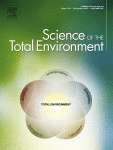Ver ítem
- xmlui.general.dspace_homeCentros Regionales y EEAsCentro Regional Patagonia SurEEA Santa CruzArtículos científicosxmlui.ArtifactBrowser.ItemViewer.trail
- Inicio
- Centros Regionales y EEAs
- Centro Regional Patagonia Sur
- EEA Santa Cruz
- Artículos científicos
- Ver ítem
Early stage litter decomposition across biomes
Resumen
Through litter decomposition enormous amounts of carbon is emitted to the atmosphere. Numerous large-scale decomposition experiments have been conducted focusing on this fundamental soil process in order to understand the controls on the terrestrial carbon transfer to the atmosphere. However, previous studies were mostly based on site-specific litter and methodologies, adding major uncertainty to syntheses, comparisons and meta-analyses across different
[ver mas...]
Through litter decomposition enormous amounts of carbon is emitted to the atmosphere. Numerous large-scale decomposition experiments have been conducted focusing on this fundamental soil process in order to understand the controls on the terrestrial carbon transfer to the atmosphere. However, previous studies were mostly based on site-specific litter and methodologies, adding major uncertainty to syntheses, comparisons and meta-analyses across different experiments and sites. In the TeaComposition initiative, the potential litter decomposition is investigated by using standardized substrates (Rooibos and Green tea) for comparison of litter mass loss at 336 sites (ranging from −9 to +26 °C MAT and from 60 to 3113 mm MAP) across different ecosystems. In this study we tested the effect of climate (temperature and moisture), litter type and land-use on early stage decomposition (3 months) across nine biomes. We show that litter quality was the predominant controlling factor in early stage litter decomposition, which explained about 65% of the variability in litter decomposition at a global scale. The effect of climate, on the other hand, was not litter specific and explained <0.5% of the variation for Green tea and 5% for Rooibos tea, and was of significance only under unfavorable decomposition conditions (i.e. xeric versus mesic environments). When the data were aggregated at the biome scale, climate played a significant role on decomposition of both litter types (explaining 64% of the variation for Green tea and 72% for Rooibos tea). No significant effect of land-use on early stage litter decomposition was noted within the temperate biome. Our results indicate that multiple drivers are affecting early stage litter mass loss with litter quality being dominant. In order to be able to quantify the relative importance of the different drivers over time, long-term studies combined with experimental trials are needed.
[Cerrar]

Autor
Djukic, Ika;
Kepfer-Rojas, Sebastian;
Kappel Schmidt, Inger;
Steenberg Larsen, Klaus.;
Beier, Claus;
Berg, Björn;
Verheyen, Kris.;
Bahamonde, Héctor Alejandro;
Peri, Pablo Luis;
Fuente
Science of The Total Environment 628–629 : 1369-1394 (2018)
Fecha
2018-02-22
Editorial
Elsevier
ISSN
0048-9697
Formato
pdf
Tipo de documento
artículo
Palabras Claves
Derechos de acceso
Restringido
 Excepto donde se diga explicitamente, este item se publica bajo la siguiente descripción: Creative Commons Attribution-NonCommercial-ShareAlike 2.5 Unported (CC BY-NC-SA 2.5)
Excepto donde se diga explicitamente, este item se publica bajo la siguiente descripción: Creative Commons Attribution-NonCommercial-ShareAlike 2.5 Unported (CC BY-NC-SA 2.5)

